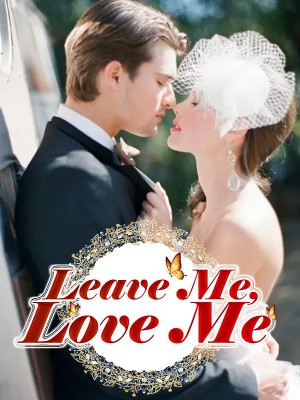The term genre is generally used to describe fiction that has certain expectations and conventions; some specific genres are romance, mystery, horror, westerns, science fiction, and fantasy.
Genre novels must adhere to the styles, and conventions of their category in order to meet readers’ expectations. For example, readers of mysteries assume any novel in that genre will start with a crime or threat of a crime, provide clues and possible motives throughout the story, and conclude with a resolution of the problem, i.e., the criminal being brought to justice, or the evil plan being thwarted.
Readers of romance expect to encounter a hero and heroine who feel intensely attracted to each other, undergo some sort of conflict that complicates their relationship, and resolve that complication so the romance can flourish
and often result in marriage
.
In order to understand the conventions of each genre, you should read several books in that category and note the similar structures, plot devices, and character types within them.
It’s important to choose one genre. While you may be able to find a publisher willing to take a risk on a cross-genre book, most agents and editors look for stories they can easily target to a specific audience. Without a firm categorization, your book is a difficult pitch to store buyers, and it’s a difficult sell to readers. It’s best to push the boundaries of a genre—and stay well within it—rather than struggle to find a publisher for a cross-genre work.
Ask yourself—does my novel appeal mostly to romance readers, mystery readers, sci-fi readers, etc? Use your answer to help identify the one audience that would be most interested in your story. Knowing this can increase your chances of success because you’re aligning your work with one genre that’s at the heart of your story.
The term genre is generally used to describe fiction that has certain expectations and conventions; some specific genres are romance, mystery, horror, westerns, science fiction, and fantasy.
Genre novels must adhere to the styles, and conventions of their category in order to meet readers’ expectations. For example, readers of mysteries assume any novel in that genre will start with a crime or threat of a crime, provide clues and possible motives throughout the story, and conclude with a resolution of the problem, i.e., the criminal being brought to justice, or the evil plan being thwarted.
Readers of romance expect to encounter a hero and heroine who feel intensely attracted to each other, undergo some sort of conflict that complicates their relationship, and resolve that complication so the romance can flourish
and often result in marriage
.
In order to understand the conventions of each genre, you should read several books in that category and note the similar structures, plot devices, and character types within them.
It’s important to choose one genre. While you may be able to find a publisher willing to take a risk on a cross-genre book, most agents and editors look for stories they can easily target to a specific audience. Without a firm categorization, your book is a difficult pitch to store buyers, and it’s a difficult sell to readers. It’s best to push the boundaries of a genre—and stay well within it—rather than struggle to find a publisher for a cross-genre work.
Ask yourself—does my novel appeal mostly to romance readers, mystery readers, sci-fi readers, etc? Use your answer to help identify the one audience that would be most interested in your story. Knowing this can increase your chances of success because you’re aligning your work with one genre that’s at the heart of your story.
The term genre is generally used to describe fiction that has certain expectations and conventions; some specific genres are romance, mystery, horror, westerns, science fiction, and fantasy.
Genre novels must adhere to the styles, and conventions of their category in order to meet readers’ expectations. For example, readers of mysteries assume any novel in that genre will start with a crime or threat of a crime, provide clues and possible motives throughout the story, and conclude with a resolution of the problem, i.e., the criminal being brought to justice, or the evil plan being thwarted.
Readers of romance expect to encounter a hero and heroine who feel intensely attracted to each other, undergo some sort of conflict that complicates their relationship, and resolve that complication so the romance can flourish
and often result in marriage
.
In order to understand the conventions of each genre, you should read several books in that category and note the similar structures, plot devices, and character types within them.
It’s important to choose one genre. While you may be able to find a publisher willing to take a risk on a cross-genre book, most agents and editors look for stories they can easily target to a specific audience. Without a firm categorization, your book is a difficult pitch to store buyers, and it’s a difficult sell to readers. It’s best to push the boundaries of a genre—and stay well within it—rather than struggle to find a publisher for a cross-genre work.
Ask yourself—does my novel appeal mostly to romance readers, mystery readers, sci-fi readers, etc? Use your answer to help identify the one audience that would be most interested in your story. Knowing this can increase your chances of success because you’re aligning your work with one genre that’s at the heart of your story.
The term genre is generally used to describe fiction that has certain expectations and conventions; some specific genres are romance, mystery, horror, westerns, science fiction, and fantasy.
Genre novels must adhere to the styles, and conventions of their category in order to meet readers’ expectations. For example, readers of mysteries assume any novel in that genre will start with a crime or threat of a crime, provide clues and possible motives throughout the story, and conclude with a resolution of the problem, i.e., the criminal being brought to justice, or the evil plan being thwarted.
Readers of romance expect to encounter a hero and heroine who feel intensely attracted to each other, undergo some sort of conflict that complicates their relationship, and resolve that complication so the romance can flourish
and often result in marriage
.
In order to understand the conventions of each genre, you should read several books in that category and note the similar structures, plot devices, and character types within them.
It’s important to choose one genre. While you may be able to find a publisher willing to take a risk on a cross-genre book, most agents and editors look for stories they can easily target to a specific audience. Without a firm categorization, your book is a difficult pitch to store buyers, and it’s a difficult sell to readers. It’s best to push the boundaries of a genre—and stay well within it—rather than struggle to find a publisher for a cross-genre work.
Ask yourself—does my novel appeal mostly to romance readers, mystery readers, sci-fi readers, etc? Use your answer to help identify the one audience that would be most interested in your story. Knowing this can increase your chances of success because you’re aligning your work with one genre that’s at the heart of your story.



